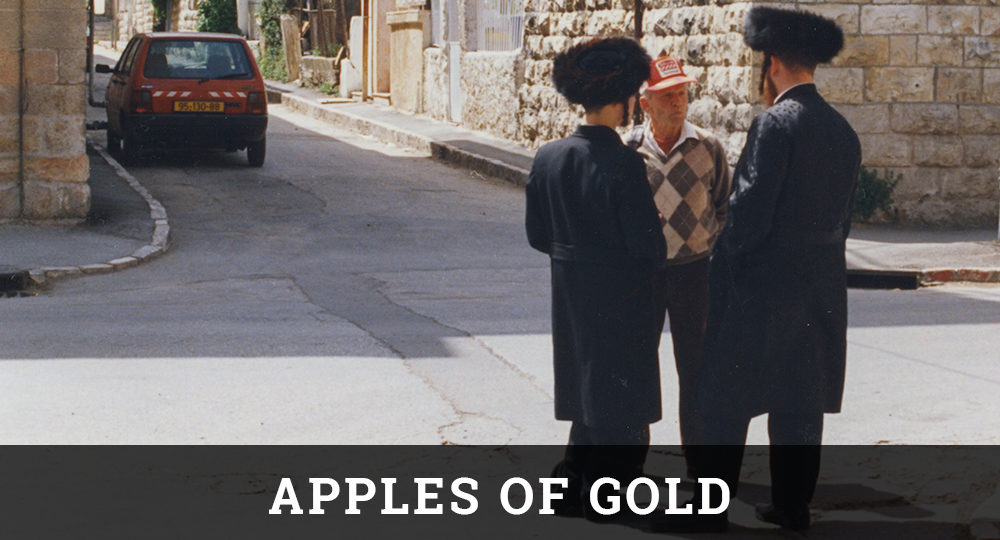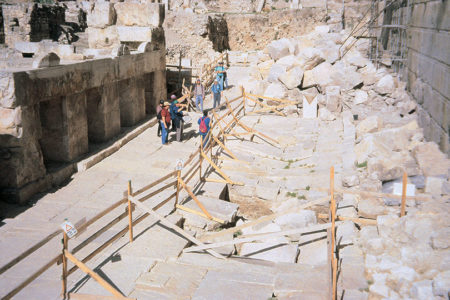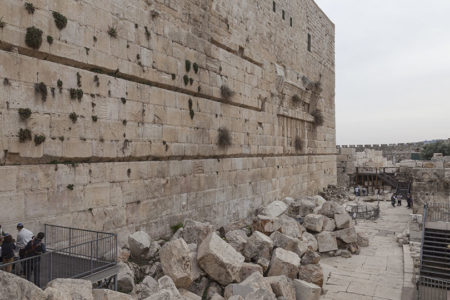Zvi Sep/Oct 2003
We are again approaching Yom Kippur, this most solemn of days, when people ask the Lord to forgive their sins. And what is more, they are so sure that when they come with their “sacrifices,” their sins will be forgiven.
But what do they come with? They come with chickens. Many an ultra-Orthodox or Orthodox Jew here will take a poor little chicken, swing it in a circle over his head three times, and say something like this: “This is my sacrifice that dies for my sins. This rooster (or hen) shall go to its death; but I shall go to a good, long life, and to peace. This is my replacement; this is my healing; this is my atonement.” Then the chicken is slaughtered. Usually it is given to the poor for food.
In Yiddish this ceremony is called schlugg kapporus. And because of it, many generations of Jewish children have grown up in darkness, thinking their sins have been forgiven. They do not know the one who truly died for them because of His great love for them—the one who truly took their sins in His body and is able to forgive them. Therefore, I must tell them.
So when some of them finish sacrificing their chickens, I am there to speak with them. “Are you so sure that God has forgiven your sins because of what you have done today?” I asked them.
“How can you even ask such a question!” one replied indignantly. “Of course we are sure.”
This time I said, “Please, show me in the Bible where it is written that by this poor little chicken your sins can be forgiven.”
Another answered me, “Can you show us where it is written that there is another atonement for our sins?”
Now, with their own words, they brought me to the right subject! This was exactly what I wanted to show them. But it is important to go slowly and let God’s Word speak for itself. So I opened the Bible and told them, “Read for yourselves.” I gave them the Bible and let them read Isaiah 53, especially verses 5–6, which read,
But he was wounded for our transgressions, he was bruised for our iniquities; the chastisement for our peace was upon him, and with his stripes we are healed. All we like sheep have gone astray; we have turned every one to his own way, and the LORD hath laid on him the iniquity of us all.
“So,” I asked them. “Was this a chicken? Is God speaking here of a chicken? Do you still think you are now pure?” They had never read this portion of God’s Word.
I also read to them Micah 7:19: “He will turn again; he will have compassion upon us; he will subdue our iniquities; and thou wilt cast all their sins into the depths of the sea.”
Many of these people come from other countries where they never observed the holidays. Because they are in Israel, they think everything done here must be right; and they fall into the traditions of men without understanding that these go against the Bible. I told them they must be careful to learn the Bible, so they can know what God truly expects of them and how He has provided for them.
“You must put your trust in God, not in men,” I told them.
“But you are a man,” one replied.
“That is correct. But what I am showing you is in the Bible. That is where you must look. You must not go to a big stack of commentaries or fictitious stories written by men. You must go directly to the Bible, which is written by the Holy Spirit of God. Think about what you have just read in the Bible. And you can see, I have no other books with me.
“Others come to you with many books and have had big success with you. See what you are doing? You are following the traditions of men and doing what they have told you to do. But what you are doing is not in the Bible. And the Bible is very clear. It says, ‘Thou shalt fear the LORD thy God, and serve him….Ye shall not go after other gods, of the gods of the people who are round about you’ (Dt. 6:13–14).
“Do not follow others who are around you. Here in the Bible you have a clear picture of whom you are to follow. Follow Him,” I said.
They were surprised to hear me speak this way and asked, “Are you a rabbi?”
“No,” I said. “I am one of those who have believed in the Lord according to His Word.”
After a long and friendly conversation, they thanked me. One said, “We are very new to Israel. We have only been here a few weeks and were like blind men. But we can see that you are telling us the truth. We are so thankful for this instruction. We are no more in darkness.”







